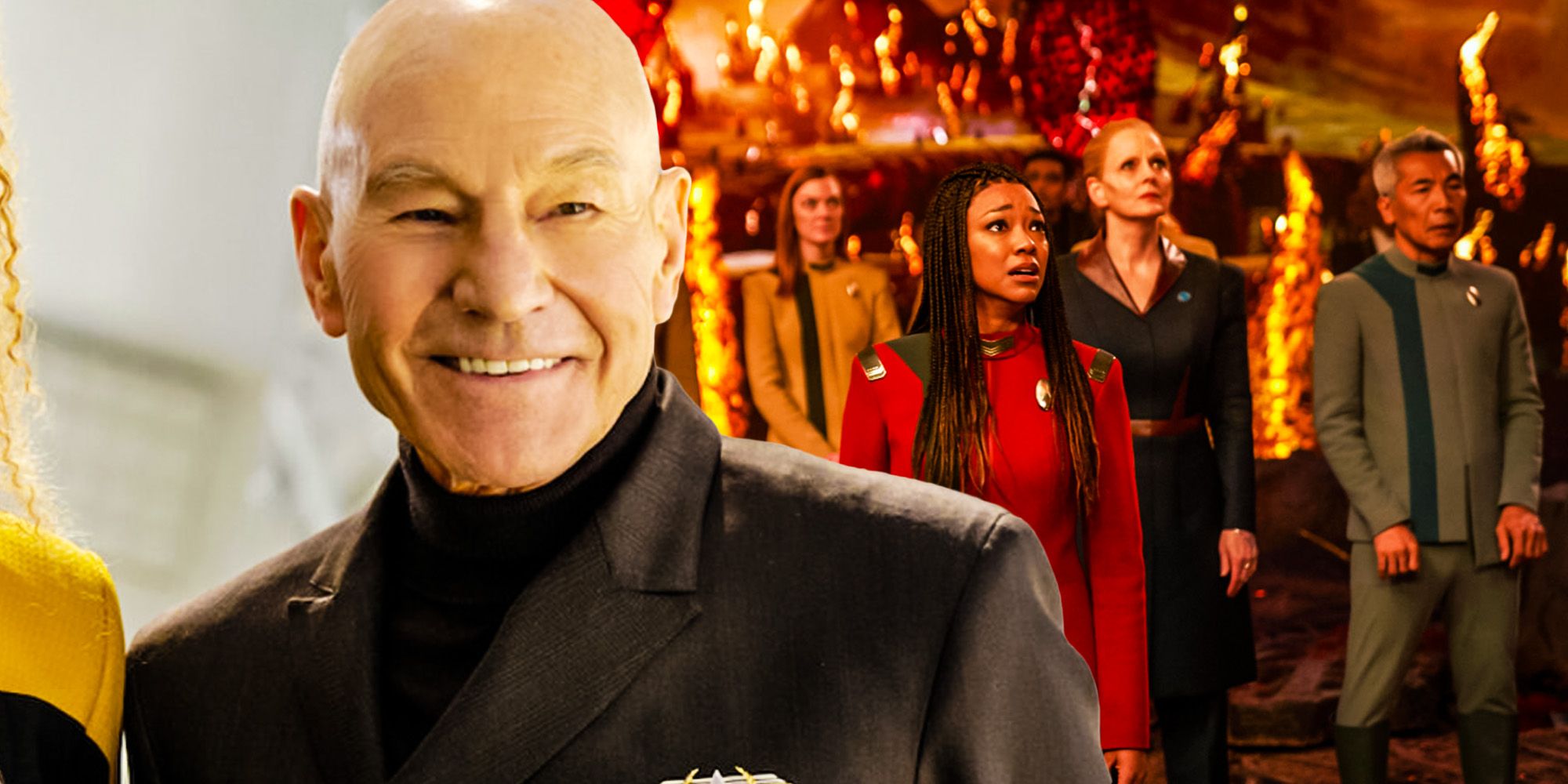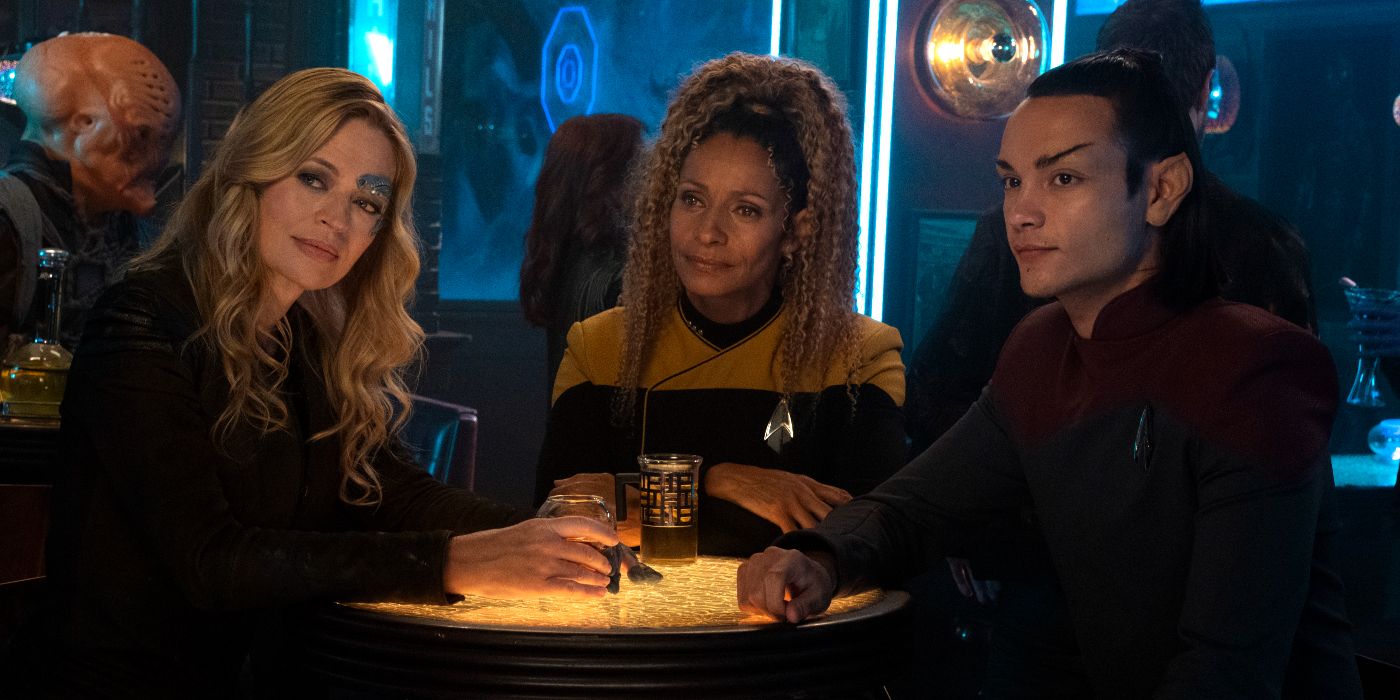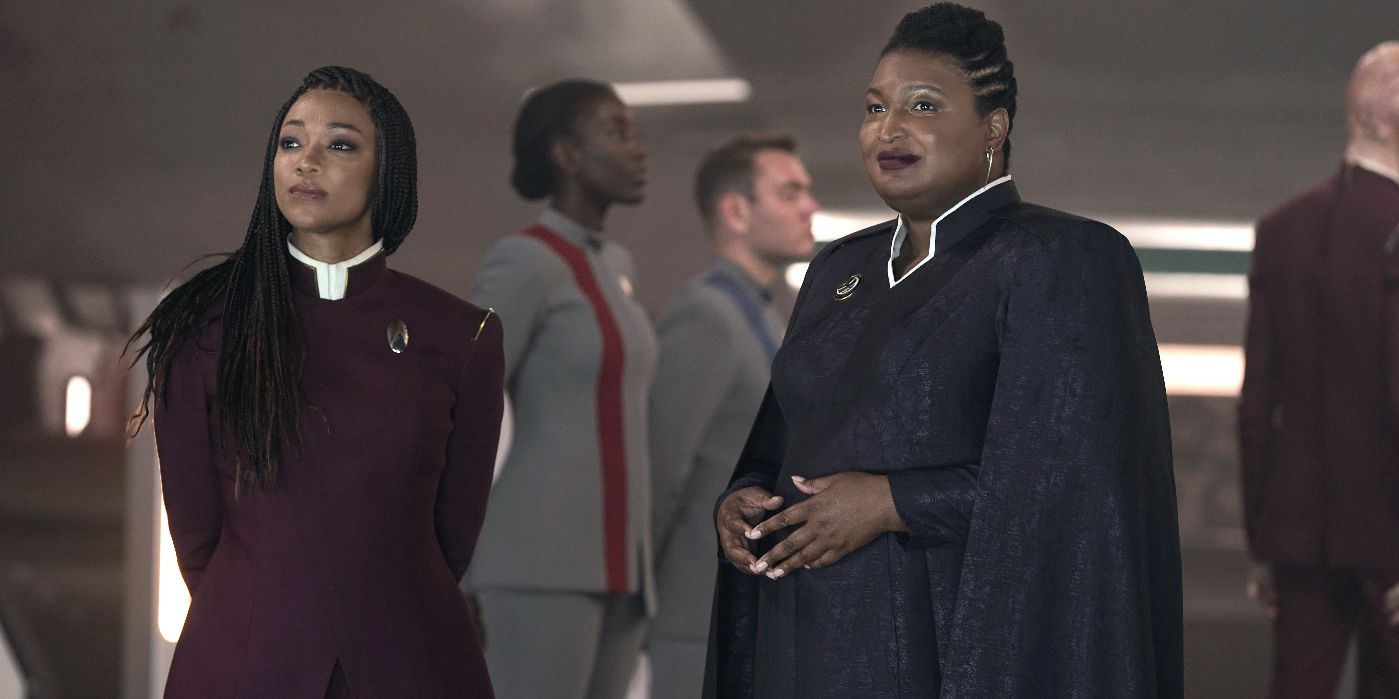Which era of Star Trek is the actual 'present day'? Currently, there are five Star Trek series on Paramount+ that are divided across four different eras in the future. Star Trek: Strange New Worlds is set in the 23rd century just a few years before Star Trek: The Original Series. The two animated series, Star Trek: Lower Decks and Star Trek: Prodigy, happen in the late 24th century, while Star Trek: Picard now takes place at the beginning of the 25th century. Finally, Star Trek: Discovery is far off in the 32nd century.
It was easier to follow which Star Trek series was the 'present day' in the 1960s, 1980s, and 1990s. Star Trek: TOS's 23rd century was the 'present day' of the franchise from 1966 onward. However, the 1987 launch of Star Trek: The Next Generation introduced the 24th century, and the two points of the timeline co-existed. As The Original Series' cast retired and TNG skyrocketed in popularity, the 24th century became the 'present day' of Star Trek, especially after Star Trek: Deep Space Nine and Star Trek: Voyager joined the franchise. By then, there was no doubt the 24th century, with its interlocking series and movies forming a larger narrative, was the 'present day.' Star Trek: Enterprise was set in the mid-22nd century and was clearly a prequel series to the entire Star Trek saga.
Today, it's not as clear-cut which Star Trek series on Paramount+ is the flagship and thus, gets to style itself as the 'present day.' Star Trek: Discovery was the first of the new wave of shows but it was also a 23rd century-set prequel before it jumped forward to the 32nd century in season 3. Star Trek: Picard has the pedigree of starring Patrick Stewart and being about icons from Star Trek: The Next Generation as well as Seven of Nine (Jeri Ryan) from Star Trek: Voyager. Meanwhile, Strange New Worlds is obviously a prequel while Lower Decks and Prodigy are technically set in TNG's era, which is now Picard's past. Of course, every Star Trek show considers its events as the 'present day' while it's really up to the audience to determine this for itself. But both Discovery and Picard can make a claim to be considered Star Trek's present day.
Is Picard Star Trek's "Present Day?"
Star Trek: Picard's showrunner Terry Matalas said he considers his show's 25th century to be the 'present day' and he has a case. Picard is a direct continuation of everything that happened in the 24th-century era of Star Trek, which is the most popular timeframe among Trekkers. Picard also boasts the most iconic legacy characters like Jean-Luc Picard, Seven of Nine, and soon the former crew of the USS Enterprise-D will join Star Trek: Picard season 3. Picard maintains the TNG era's familiar iconography, and a clear and direct line can be drawn from Captain Archer (Scott Bakula) to Captain Kirk (William Shatner) to Admiral Picard. It's easy to back Matalas' opinion that Star Trek: Picard is Star Trek's 'present day'.
Is Discovery Star Trek's "Present Day?"
However, the argument can be made that Star Trek: Discovery is the true 'present day' and that everything else, including Picard, is mired in the past. Now settled in the 32nd century, Captain Michael Burnham (Sonequa Martin-Green) and the USS Discovery are charting new canon in a completely wide-open final frontier. If 0ne considers that Star Trek is about boldly going into the future, then it's Discovery that is truly moving the Star Trek franchise forward. So, when it comes to settling which series is Star Trek's 'present day,' it's just a matter of perspective whether one sees Discovery as 'the future' or if it's really Star Trek's 'now' and everything behind it is simply history.
Every Star Trek movie and TV series is available to stream on Paramount+.



